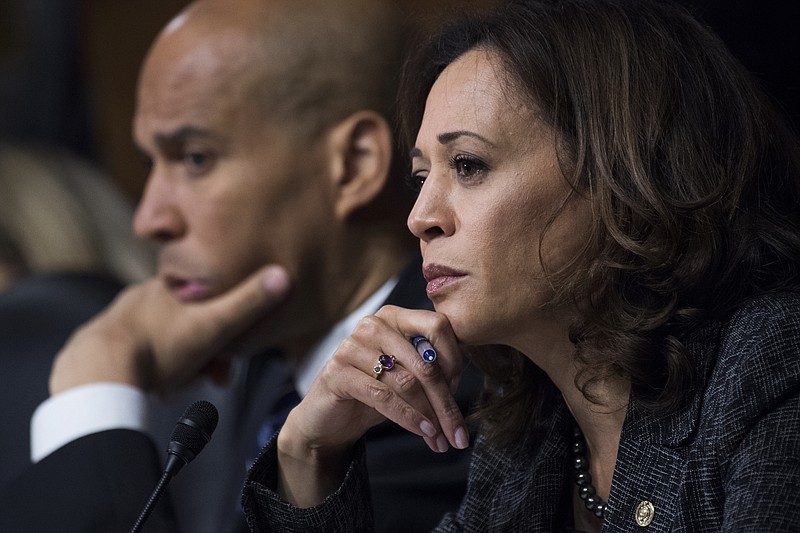Michael Kelly, the legendary journalist who died covering the invasion of Iraq in 2003, once wrote that the "animating impulse" of modern liberalism was to "marginalize itself and then enjoy its own company. And to make itself as unattractive to as many as possible."
"If it were a person," he added, "it would pierce its tongue."
I thought of that line while reading a tweet from Nate Cohn, The Times' polling guru: "Take everything together, and, on balance, it's been a good 10 days of state/cd polling for the GOP in a lot of important battlegrounds."
The "cd" refers to congressional districts, where Republicans now have at least a fighting chance of holding on to a majority despite the widely anticipated blue wave. Even better are Republican chances of holding the Senate. On Sept. 30, RealClearPolitics gave the GOP a lock on 47 seats, with nine tossups. Now it's 50 and six with races in Tennessee, Texas, and North Dakota increasingly leaning right. Donald Trump's approval rating is also up from a month ago.
This wasn't supposed to happen. Not during a midterm when the opposition party almost always gains seats. Not after 21 months of Trumpian chaos. Not after a year of #MeToo. Not after Christine Blasey Ford's emotional testimony and Brett Kavanaugh's angry retort.
And yet it is. Predictably. Once again, American liberalism has pierced its own tongue.
It pierced its tongue on CNN, when Hillary Clinton told Christiane Amanpour that "you cannot be civil with a political party that wants to destroy what you stand for, what you care about." And when former Attorney General Eric Holder said, "When they go low, we kick 'em."
It pierced its tongue when New York Rep. Jerrold Nadler pledged to use a Democratic House majority to open an investigation into Kavanaugh's alleged perjury and the "whitewash" investigation by the FBI.
It pierced its tongue last month when Cory Booker and Kamala Harris turned Kavanaugh's confirmation hearing into audition tapes for their presidential bids, complete with "I am Spartacus" histrionics.
It pierced its tongue when Minority Leader Chuck Schumer chose to make Kavanaugh's confirmation the year's decisive political test, rather than run a broad referendum on Trump's inglorious tenure.
It pierced its tongue when The New Yorker violated normal journalistic standards by reporting Deborah Ramirez's uncorroborated allegation against Kavanaugh, and much of the rest of the media gave credence Julie Swetnick's lurid one. The pile-on wound up doing more to stiffen Republican spines against an apparent witch hunt than it did to weaken their resolve in the face of Blasey's powerful accusation.
It pierced its tongue when Susan Collins and other female Republicans who supported Kavanaugh's confirmation were denounced as "gender traitors" in an eye-opening op-ed in The New York Times. About 30 million women voted for Trump in 2016, and many of them (along with at least a few Clinton supporters) surely felt just as Collins did. Are they all "traitors," too?
Much of this merely echoes the uncivil politics that have been practiced by Trump and his followers. But if the most liberals can say for their political tactics is that they aren't as bad as Trump's, they are indicting themselves twice - for imitating the wrong model, and for doing it worse.
In 2018, Democrats had a chance not to become that party. Once again, they're flubbing it. It's a pity both sides can't lose, but maybe a midterm disappointment might teach liberals that they won't beat Trump in 2020 by out-clowning him.
The New York Times
